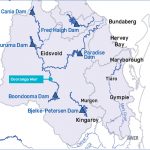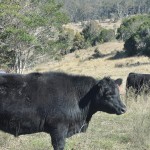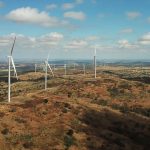
June 1, 2020
Australian agricultural land prices appear to be defying the COVID-19 economic downturn.
Farm finance business Rabobank says Australian agricultural land prices were expected to hold firm through 2020, defying the effects of a global recession.
In a just-released report, the bank says while much of the global and local economy was being severely buffeted, Australian agricultural land was expected to remain largely unscathed due primarily to overall farm profitability, a tight sales market, support from low interest rates and a weak Australian dollar.
However, the report cautions, the outlook for Australian agricultural property was not without risk in the current environment – most particularly the threat of a deeper-than-expected global recession, a significant interruption to Australia’s access to major agricultural export markets or a credit crisis.
Report author, Rabobank agricultural analyst Wes Lefroy, said positive production prospects along with commodity prices supported by a weaker Australian dollar should underpin a profitable season for most Australian farmers in 2020-21 – and this augurs well for agricultural land prices.
“Farmer operating profit, in our view, is the primary driver of Australian land prices,” Mr Lefroy said.
“In particular, sustained periods of profitability provide farmers with the financial capacity to buy more land.
“Despite the drought that has gripped much of the east coast over the past three years, reported three-year average farm operating profits are at their highest point since at least 1990 in Western Australia, South Australia, Tasmania and Victoria. Further, they are above the 10-year average in all states, except NSW.
“For farmers with expansion intentions, many will have the capacity to buy land.”
Mr Lefroy said an historically low supply of available properties for purchase would also be a key factor supporting agricultural land prices.
“We see the number of properties on the market staying at, or near, historical lows in 2020 for a number of reasons,” he said.
“We expect there will only be a very small number of sales which are due to financial circumstances, with improved production supporting cash-flow generation in drought-affected regions.
“On top of this, record-low borrowing costs have increased farmers’ capacity to service existing debt and interest rates are set to remain historically low for at least the next three years.”
Mr Lefroy said COVID-19-related restrictions had been a challenge for property inspections and auctions.
“Sellers who have flexible time frames may hold back on listing properties, which will also keep the market tight,” he said.
The report says while many economic fundamentals had been “severely negatively” impacted by COVID-19, in some instances this would provide support for investment in agricultural land.
“Relatively low returns for other asset classes – such as equities, commercial property and bonds – will increase the attractiveness of agricultural land for both local and foreign investors,” Mr Lefroy said.
“Secondly, a weak and depreciating Australian dollar will support demand from foreign investors.
“So far this year, the Australian dollar has depreciated against the US dollar and the euro, effectively decreasing the price of Australian farmland for investors in those currencies.
“In addition, the purchasing power of local farmers will be maintained in the medium-term by historically low borrowing costs.
“And overall, the volatility and impact that COVID-19 has caused in other asset classes has also highlighted the stable and countercyclical nature of agricultural land, reinforcing its attractiveness as an investment.”
While Australian agricultural land was in a strong position to withstand the economic impacts of COVID-19, the report also recognised there were risks to this outlook.
“A deeper and longer-than-expected recession would both reduce investment appetite and impact demand for Australia’s agricultural products offshore, impacting farmgate prices and farm profitability,” Mr Lefroy said.
“In the event of a credit crisis, this would essentially put a pause of debt-funded property purchases.
“Loss of access to a key market for Australian agriculture would also significantly impact farmer profits, and therefore, capacity to purchase land.”






















